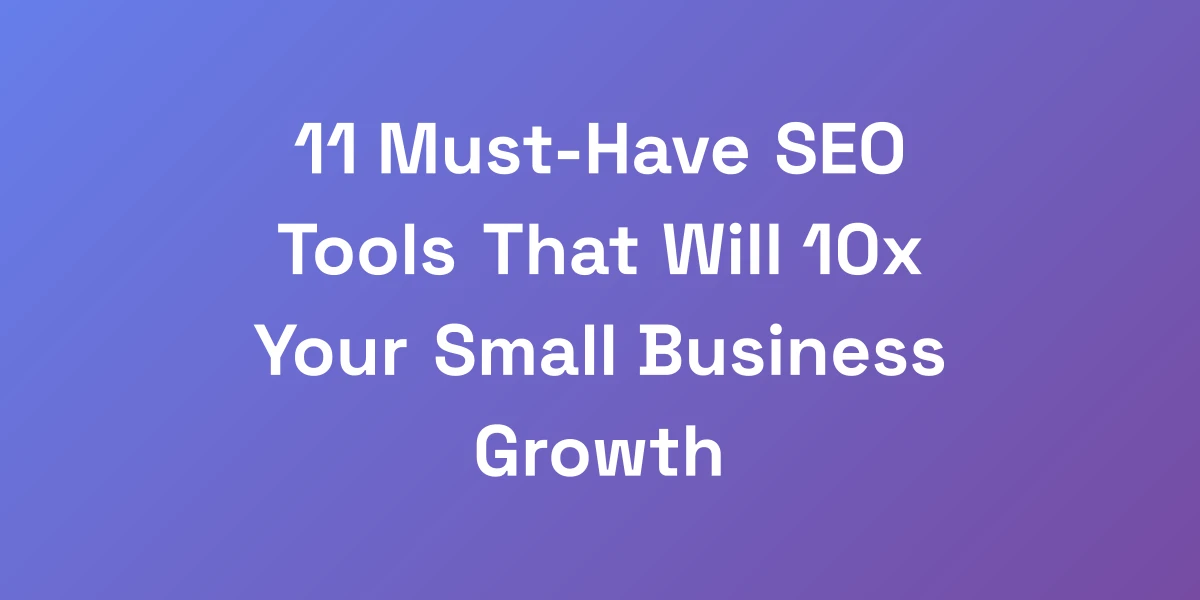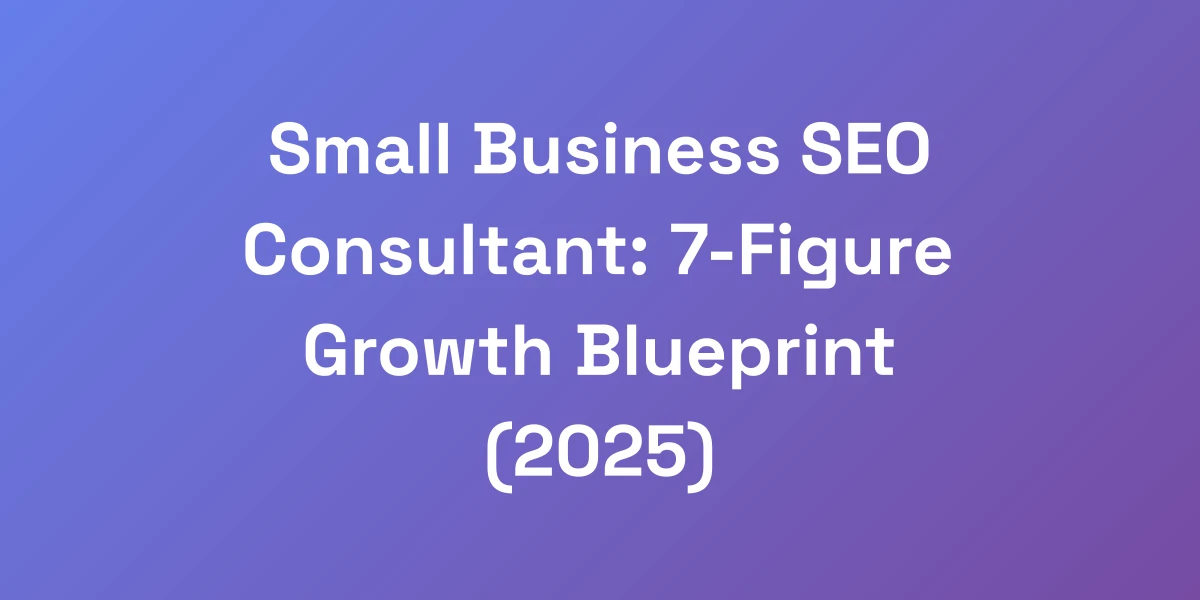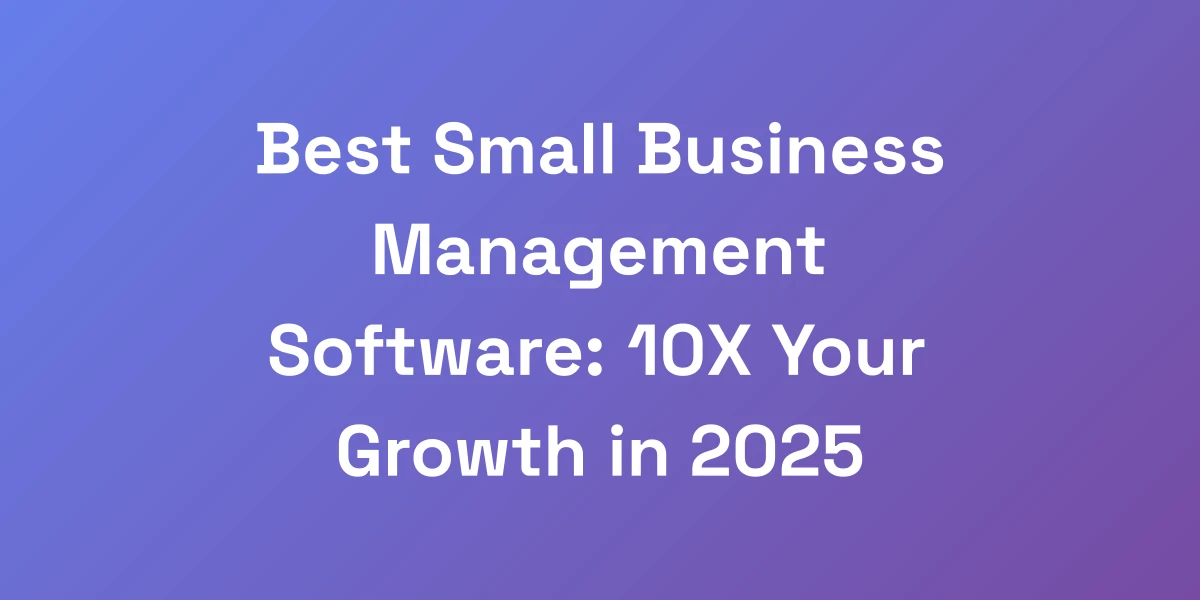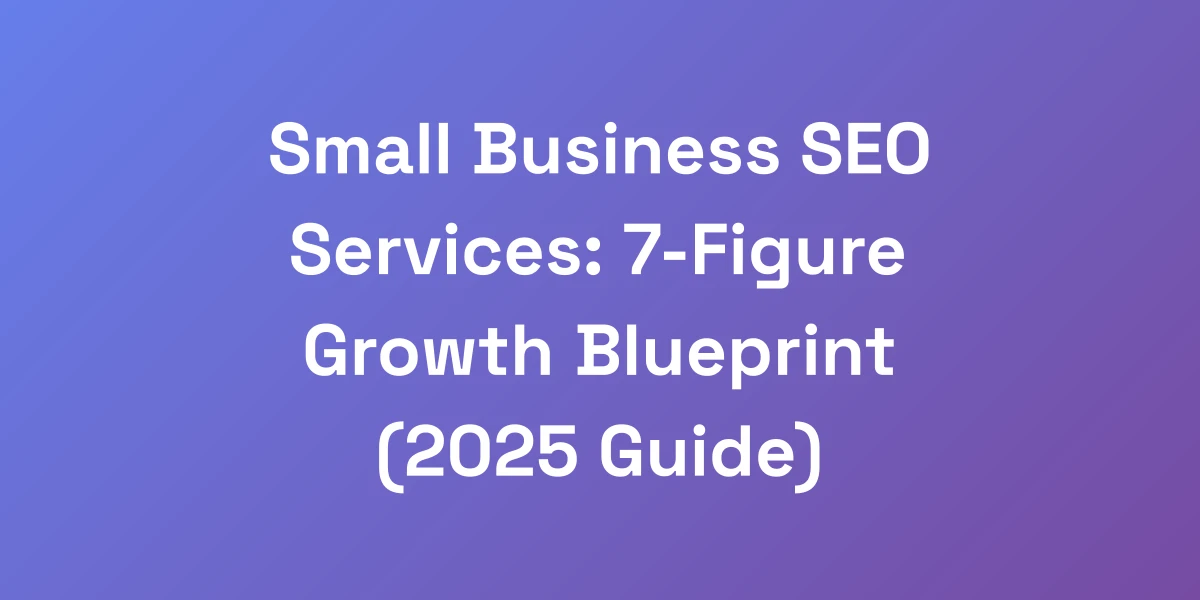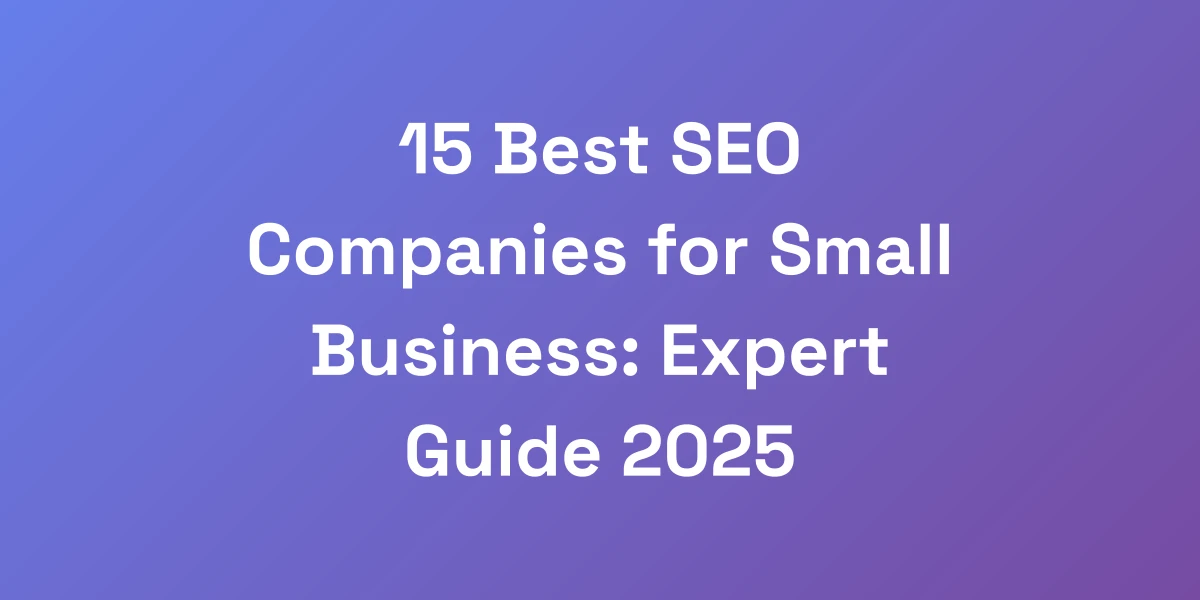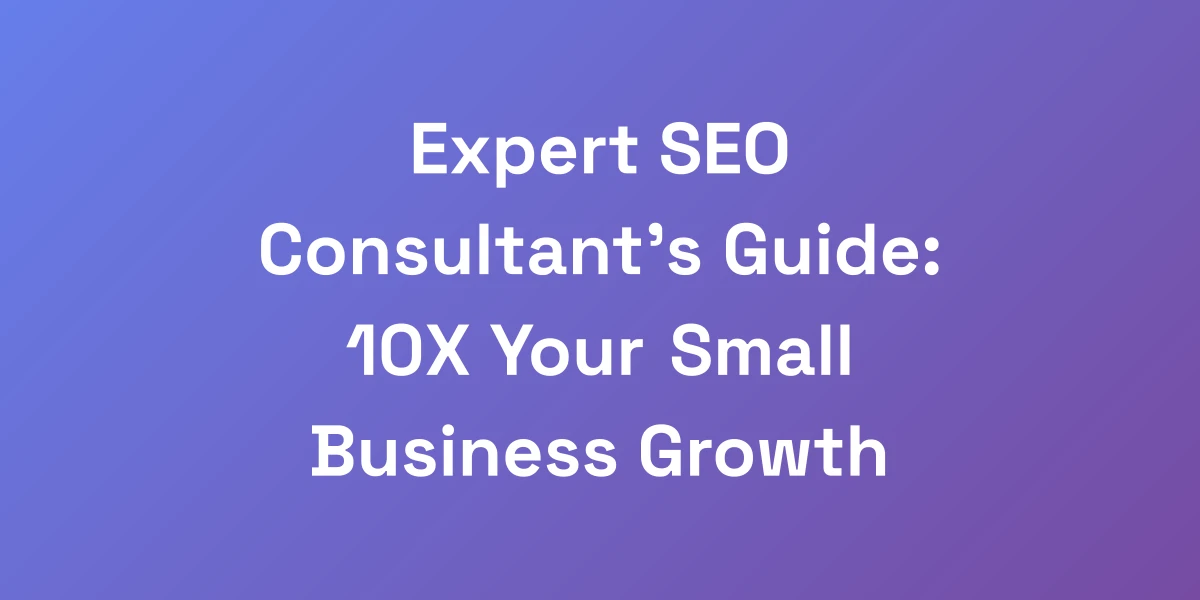
Expert SEO Consultant’s Guide: 10X Your Small Business Growth
Mar 14, 2025 | By zishansami102@gmail.com
Why Most Small Businesses Fail at SEO (And How to Fix It)
Let us hit you with some truth: 90% of small businesses are bleeding money on SEO because they’re playing checkers while their competitors are playing chess.
Here’s the deal – we’ve consulted for businesses doing $100K to $100M in revenue, and they all made the same mistakes before working with us.
The difference between success and failure isn’t just about throwing money at the problem – it’s about understanding the exact leverage points that move the needle in your market.
Let’s cut through the BS and focus on what actually works in 2025.
The Hidden Cost of DIY SEO
Attempting to handle SEO without professional help might seem cost-effective initially, but it often leads to missed opportunities and wasted resources.
Here’s why:
- Time Investment: SEO isn’t a one-time task. It requires continuous effort and expertise, which can drain your time away from core business activities.
- Learning Curve: Without proper knowledge, it’s easy to make mistakes that can harm your website’s ranking instead of helping it.
- Tool Costs: Effective SEO requires various tools for keyword research, analytics, and monitoring. These can add up quickly.
Real-life example: A local bakery attempted DIY SEO. They invested countless hours optimizing their site but saw negligible growth. Their competitor, who hired a professional SEO consultant, quickly climbed search rankings and captured the market share.
Actionable Tip: Consider the long-term benefits of hiring an SEO consultant for small business. The expertise and strategic planning they bring can save you time and money, ultimately driving better results.
Common SEO Mistakes That Kill Small Business Growth
Many small businesses fall into the same SEO traps that hinder their growth. Let’s identify these pitfalls:
- Ignoring Mobile Optimization: With 800 million “near me” searches on mobile per month, neglecting mobile can severely limit your reach.
- Poor Keyword Selection: Focusing on irrelevant or overly competitive keywords can waste your efforts without yielding significant traffic.
- Neglecting Local SEO: Missing out on local search optimization can prevent potential customers in your area from finding you.
Case Study: A boutique clothing store focused solely on high-volume keywords, neglecting local search terms. As a result, they struggled to attract nearby customers, while competitors optimized for local SEO and saw substantial growth.
Actionable Tip: Audit your current SEO strategy to identify and eliminate these common mistakes. Prioritize mobile optimization, conduct thorough keyword research, and invest in local SEO to enhance your visibility. Also, refer to the latest local SEO statistics to stay informed.
Why Traditional SEO Agencies Often Miss the Mark
Traditional SEO agencies promise results, but often fail to deliver due to a lack of personalized strategies and understanding of your business.
Here’s what sets successful SEO consultants apart:
- Customized Strategies: They tailor their approach based on your specific business goals and market dynamics.
- Transparent Reporting: Providing clear insights into what’s working and what isn’t, without relying on vague metrics.
- Continuous Optimization: They adapt strategies in response to algorithm changes and emerging trends.
Imagine an SEO agency using a generic template for all clients. The lack of customization means your unique business needs are overlooked, leading to subpar performance.
Actionable Tip: When selecting an SEO consultant for small business, ensure they offer personalized strategies, transparent reporting, and a commitment to ongoing optimization tailored to your business. Consider the best SEO outsourcing companies in 2025 to find a partner that meets your specific needs.
The Real Metrics That Matter for Business Growth
Focusing on vanity metrics like website traffic can be misleading. Instead, prioritize metrics that directly contribute to your business growth.
- Conversion Rate: The percentage of visitors who take a desired action, such as making a purchase or filling out a contact form.
- Quality of Leads: Assessing whether the traffic you’re attracting aligns with your target audience by focusing on quality lead generation through SEO.
- Return on Investment (ROI): Measuring the financial return generated from your SEO efforts compared to the investment made.
For instance, leads from search engines have a close rate of 14.6%, significantly higher than outbound leads at 1.7%. This highlights the importance of attracting quality traffic that is more likely to convert.
Actionable Tip: Track these key metrics regularly to gauge the effectiveness of your SEO strategy. Adjust your tactics based on what drives tangible business results.
Breaking Down Successful SEO Case Studies
Analyzing successful SEO campaigns provides valuable insights into what works in the real world.
Case Study 1: A regional restaurant saw a 200% increase in organic traffic after optimizing their Google Business Profile and focusing on local keywords. They also improved their Core Web Vitals, enhancing user experience and search rankings.
Case Study 2: An online retailer partnered with an SEO consultant for small business to develop a content strategy targeting long-tail keywords. This approach not only boosted their search visibility but also increased their conversion rates by 25%.
These examples demonstrate the power of strategic SEO efforts tailored to specific business needs and market conditions.
Actionable Tip: Use these case studies as a blueprint for your own SEO strategy. Focus on local optimization, user experience, and targeted content to replicate their success.
The Small Business SEO Growth Framework
Stop wasting time on outdated SEO tactics. We’re about to share the exact framework that’s generated millions in revenue for our clients.
This isn’t theory – it’s a battle-tested system that works across industries. The key is focusing on high-leverage activities that drive actual business results, not vanity metrics.
We’re talking about a systematic approach that turns your website into a customer acquisition machine, not just a pretty brochure.
The 80/20 Rule of SEO ROI
The 80/20 rule states that 80% of your results come from 20% of your efforts. In SEO, this means identifying and prioritizing the activities that deliver the highest return on investment.
Focus on:
- High-Impact Keywords: Targeting keywords that are both relevant and have a high conversion potential.
- Core Web Vitals: Ensuring your website meets Google’s performance standards to enhance user experience and rankings.
- Local SEO: Optimizing for local search terms to attract nearby customers actively seeking your products or services.
Example: By concentrating on a select group of high-impact keywords, a local plumbing service saw a 150% increase in quality leads without increasing their SEO budget.
Actionable Tip: Conduct a thorough analysis to identify the 20% of SEO activities that yield 80% of your results. Allocate resources accordingly to maximize your ROI.
Identifying Your Money Keywords
Your “money keywords” are the terms that drive revenue by attracting high-intent visitors who are ready to convert.
Steps to identify them:
- Research Relevance: Choose keywords that are closely related to your products or services.
- Assess Intent: Focus on keywords that indicate a strong purchase or engagement intent.
- Evaluate Competition: Select keywords with manageable competition to enhance your chances of ranking.
Example: A local bakery targeting “best cupcakes in [City]” is more likely to attract customers ready to make a purchase compared to generic terms like “cupcakes.”
Actionable Tip: Use tools like Google Keyword Planner or SEMrush to identify and prioritize your money keywords based on relevance, intent, and competition.
Content That Converts vs. Content That Ranks
There’s a fundamental difference between creating content that merely ranks and content that converts visitors into customers.
- Content That Ranks: Focuses on keyword inclusion and SEO best practices to achieve high search engine rankings.
- Content That Converts: Designed to engage the reader, address their needs, and prompt action, such as making a purchase or contacting your business.
By integrating both aspects, you create content that not only attracts visitors but also compels them to take desired actions.
Case Study: An online fitness coach revamped their blog to include actionable tips and personalized calls-to-action. This shift from purely ranking-focused content to conversion-oriented content resulted in a 30% increase in client inquiries.
Actionable Tip: Balance your content strategy by optimizing for search engines while crafting compelling, business blogging strategies that motivate readers to convert.
Technical SEO Priorities for Maximum Impact
Technical SEO lays the foundation for your website’s performance and search engine visibility.
Key priorities include:
- Site Speed: A fast-loading website improves user experience and is favored by search engines. Remember, only about 33% of websites pass the Core Web Vitals threshold.
- Mobile Responsiveness: With the surge in mobile “near me” searches, ensuring your site is mobile-friendly is crucial.
- Schema Markup: Implementing schema helps search engines understand your content better, enhancing your chances of appearing in rich snippets.
Example: A local dentist improved their site speed and mobile responsiveness, resulting in a 40% increase in mobile traffic and higher search rankings.
Actionable Tip: Conduct a technical SEO audit to identify and resolve issues related to site speed, mobile optimization, and structured data implementation.
Local SEO Domination Strategies
Local SEO is a game-changer for small businesses aiming to attract nearby customers actively searching for their offerings.
Strategies to dominate local SEO:
- Optimize Google Business Profile: Ensure your profile is complete, accurate, and regularly updated.
- Local Keyword Integration: Use location-based keywords in your content, meta tags, and descriptions.
- Encourage Customer Reviews: Positive reviews enhance your credibility and improve local search rankings.
Case Study: A coffee shop focused on local SEO by optimizing their Google Business Profile and encouraging reviews. This led to a 50% increase in foot traffic and higher rankings in local search results.
Actionable Tip: Implement these local SEO strategies to enhance your visibility in your community and attract more customers to your physical or online store.
Implementing Your 90-Day SEO Action Plan
Look, you don’t need 12 months to see results. If you’re not seeing meaningful progress in 90 days, something’s wrong with your strategy.
We’re breaking down the exact week-by-week process that will get you ranking for terms that actually drive revenue. This isn’t about playing the long game – it’s about making strategic moves that create immediate impact while building for long-term dominance.
Week 1-4: Foundation and Quick Wins
The initial phase focuses on building a strong SEO foundation and securing quick wins that boost your visibility.
- Website Audit: Identify technical issues, broken links, and areas for improvement.
- Keyword Research: Determine your money keywords and integrate them strategically.
- On-Page Optimization: Optimize meta tags, headers, and content for targeted keywords as part of essential SEO services.
- Local Listings: Ensure your business information is accurate across all local directories.
Example: A home services company fixed technical issues, optimized their homepage for key terms, and updated their local listings, resulting in a 20% increase in organic traffic within the first month.
Actionable Tip: Start with a comprehensive audit and tackle the most impactful issues first. Implement quick fixes that can yield immediate improvements in search rankings.
Week 5-8: Content Creation and Optimization
With a solid foundation in place, the next phase is focused on creating and optimizing content that attracts and converts.
- Content Strategy: Develop a plan that addresses your audience’s pain points and interests.
- Content Creation: Produce high-quality, in-depth articles, blog posts, and multimedia content.
- Internal Linking: Connect related content to enhance navigation and boost SEO.
- Content Optimization: Ensure that all new content is optimized for SEO best practices.
Case Study: An online retailer created a series of how-to guides and product reviews targeting long-tail keywords. This approach not only increased their search visibility but also improved their conversion rates by 15%.
Actionable Tip: Invest in creating valuable content that aligns with your SEO goals. Focus on quality and relevance to engage your audience and drive conversions.
Week 9-12: Link Building and Authority Building
The final phase involves building your website’s authority through strategic link building and establishing your brand as an authority in your niche.
- Backlink Outreach: Connect with reputable websites and request backlinks to your content.
- Guest Posting: Publish articles on industry-related blogs to gain exposure and backlinks.
- Social Media Integration: Promote your content on social platforms to drive traffic and engagement.
- Authority Building: Establish partnerships and collaborations that enhance your brand’s credibility.
Example: A tech startup engaged in guest posting and secured backlinks from high-authority sites, resulting in a 30% boost in domain authority and higher search rankings.
Actionable Tip: Develop a link-building strategy that emphasizes quality over quantity. Focus on acquiring backlinks from authoritative sources within your industry.
Measuring Success and ROI
Tracking your progress is essential to understand the effectiveness of your SEO efforts and to make informed adjustments.
- Key Performance Indicators (KPIs): Monitor metrics like organic traffic, conversion rates, and keyword rankings.
- Analytics Tools: Utilize tools like Google Analytics and SEMrush to track your SEO performance.
- Regular Reporting: Create reports to evaluate what’s working and identify areas for improvement.
For instance, tracking the increase in organic traffic and correlating it with sales data can provide a clear picture of your ROI.
Using automated SEO reporting tools can further enhance your ability to monitor and analyze your SEO performance efficiently.
Actionable Tip: Set up a regular reporting schedule to track your KPIs. Use this data to refine your strategy and ensure that your SEO efforts are driving tangible business results.
Scaling What Works
Once you’ve identified strategies that yield positive results, it’s time to scale them to maximize growth.
- Expand Content Efforts: Increase the volume and variety of content based on what’s resonating with your audience.
- Increase Outreach: Broaden your link-building campaigns to reach more high-authority sites.
- Optimize Further: Continuously refine your on-page and technical SEO based on performance data.
Case Study: After identifying that local SEO efforts were driving significant traffic, a fitness center expanded their local content and partnerships, resulting in a 50% increase in local search visibility.
Actionable Tip: Focus on scaling proven strategies. Allocate more resources to the activities that are delivering the best results and explore new opportunities for growth.
Choosing the Right SEO Consultant for Your Business
Here’s the brutal truth about the SEO industry: most consultants are great at selling but terrible at delivering results.
You need someone who understands business fundamentals, not just SEO tricks. We’re going to show you exactly how to evaluate and choose an SEO consultant who can actually drive growth for your specific business.
No more wasting money on fancy reports that don’t translate to revenue.
Red Flags to Watch Out For
When selecting an SEO consultant, it’s crucial to be aware of common red flags that may indicate a lack of expertise or integrity.
- Guaranteed Rankings: No one can guarantee specific rankings due to the ever-changing nature of search algorithms.
- Black Hat Techniques: Avoid consultants who use unethical practices like keyword stuffing or link farming.
- Lack of Transparency: If a consultant is vague about their strategies or refuses to share detailed reports, it’s a red flag.
For example, a consultant promising top rankings overnight is likely using black hat techniques, which can result in penalties rather than sustainable growth.
Actionable Tip: Be cautious of promises that sound too good to be true. Focus on consultants who prioritize ethical, sustainable SEO practices.
Must-Ask Questions Before Hiring
To ensure you’re choosing the right SEO consultant, ask these essential questions:
- What is your SEO strategy? Understand their approach and ensure it aligns with your business goals.
- Can you provide case studies? Review their past work to gauge their effectiveness and experience.
- How do you measure success? Ensure they focus on metrics that matter to your business, such as conversions and ROI.
- What tools do you use? Familiarize yourself with the tools they employ to optimize your SEO.
Example: Asking for case studies can help you verify their track record and understand how they’ve helped other businesses similar to yours.
Actionable Tip: Prepare a list of questions to thoroughly evaluate potential consultants. This ensures you select someone who is transparent, experienced, and aligned with your objectives.
Understanding Pricing and ROI
SEO is an investment, and understanding the pricing structure is essential to ensure you’re getting value for your money.
- Hourly Rates: Typically range from $75 to $100, depending on the provider.
- Monthly Retainers: Agencies often charge between $1,500 and $5,000 per month, while freelancers may charge around $1,348 on average.
- Project-Based Fees: For specific projects, pricing can vary based on scope and complexity.
Relevance: Knowing these rates helps you budget effectively and avoid overspending on affordable SEO services.
Actionable Tip: Discuss pricing transparently with potential consultants. Ensure their fees are justified by the value they deliver and align with your budget.
Setting Realistic Expectations
SEO is not a quick fix. It’s vital to set realistic expectations about what can be achieved within specific timeframes.
- Timeline: Understand that it may take several months to see significant results.
- Milestones: Set achievable milestones to track progress and stay motivated.
- Flexibility: Be prepared to adjust your strategy based on performance and changing market conditions.
Example: An SEO consultant might outline a 6-month plan with phased goals, helping you see incremental progress rather than expecting overnight success.
Actionable Tip: Have an open and honest conversation about timelines and expected outcomes. Ensure your consultant sets realistic goals aligned with your business needs.
Creating an Effective Working Relationship
A successful partnership with an SEO consultant hinges on clear communication and mutual understanding.
- Regular Updates: Schedule consistent meetings to discuss progress, challenges, and adjustments.
- Defined Roles: Clearly outline responsibilities to avoid overlap and ensure accountability.
- Open Communication: Foster an environment where feedback is encouraged and valued.
Case Study: A small e-commerce business worked closely with their SEO consultant, holding weekly check-ins and sharing insights. This collaborative approach led to a 50% increase in organic traffic within six months.
Actionable Tip: Establish a structured communication plan with your consultant. Regular updates and transparent discussions foster trust and drive better results.
Future-Proofing Your SEO Strategy
The SEO game is constantly changing, but the principles of business growth remain the same.
We need to build a strategy that doesn’t crumble with every Google update.
We’re going to show you how to create an adaptable SEO foundation that continues to deliver results regardless of algorithm changes.
This is about building a sustainable competitive advantage, not quick fixes.
Emerging SEO Trends Worth Your Attention
Staying ahead of SEO trends ensures your strategy remains effective and relevant.
- Voice Search Optimization: With the rise of smart speakers, optimizing for voice search queries is becoming essential.
- Video SEO: Incorporating video content can enhance user engagement and improve search rankings.
- AI Integration: Leveraging AI tools for keyword research, content creation, and data analysis can streamline your SEO efforts.
Example: A local gym started optimizing their website for voice search by using natural language keywords, leading to a 20% increase in local traffic from voice searches.
Actionable Tip: Keep abreast of SEO trends and integrate relevant ones into your strategy. This proactive approach ensures you remain competitive and maintain strong search rankings.
AI and SEO: What Really Matters
AI is transforming the SEO landscape, offering new opportunities for optimization and efficiency.
- Content Generation: AI-powered tools can assist in creating optimized content quickly and effectively.
- Predictive Analytics: AI helps in forecasting trends and user behavior, allowing for more strategic planning.
- Automation: Automating repetitive tasks like keyword research and performance tracking saves time and resources.
Example: A tech startup utilized AI tools to generate SEO-optimized blog posts, increasing their content output by 50% without compromising quality.
Actionable Tip: Incorporate automatic SEO optimization tools into your SEO strategy to enhance efficiency and gain deeper insights into your market and audience.
Building Brand Authority That Lasts
Establishing your brand as an authority in your niche ensures sustained SEO success.
- High-Quality Content: Consistently produce valuable and informative content that resonates with your audience.
- Thought Leadership: Share insights and expertise through blogs, webinars, and industry publications.
- Community Engagement: Participate in forums, social media groups, and local events to build relationships and credibility.
Case Study: An online marketing agency focused on producing authoritative content and engaging with their community, resulting in a strong brand presence and consistent search rankings.
Actionable Tip: Invest in building your brand’s authority by providing value to your audience and engaging with them across multiple channels.
Creating Systems for Ongoing Success
To ensure your SEO strategy remains effective, it’s essential to implement systems that support continuous improvement.
- Regular Audits: Conduct routine SEO audits to identify and address issues proactively.
- Performance Tracking: Use analytics tools to monitor your SEO performance and make data-driven decisions.
- Continuous Learning: Stay informed about industry changes and best practices through courses, webinars, and industry news.
Example: A small business set up monthly SEO audits and performance reviews, allowing them to swiftly adapt to changes and maintain their search rankings.
Actionable Tip: Develop a systemized approach to SEO management, incorporating regular assessments and updates to keep your strategy aligned with your business goals.
Staying Ahead of Competition
Maintaining a competitive edge in SEO requires vigilance and proactive strategy adjustments.
- Competitive Analysis: Regularly analyze your competitors’ SEO strategies to identify opportunities and threats.
- Unique Value Proposition: Clearly communicate what sets your business apart from competitors.
- Innovation: Experiment with new SEO techniques and content formats to differentiate yourself in the market.
Case Study: A local boutique conducted a thorough competitive analysis, identified gaps in their competitors’ strategies, and implemented unique content approaches, resulting in higher search visibility and customer engagement.
Actionable Tip: Continuously monitor your competitors and seek out innovative ways to enhance your SEO strategy. This proactive stance ensures you remain ahead in the search rankings.
Conclusion
We’ve walked you through the critical aspects of leveraging SEO to 10X your small business growth. From understanding why most businesses fail at SEO to implementing a robust 90-day action plan, the path to SEO success is clear and attainable.
Remember, the key lies in focusing on high-leverage activities that drive real business results, partnering with the right SEO consultant for small business, and building a future-proof strategy that stands the test of time.
Ready to transform your business? Take the first step today by evaluating your current SEO strategy and reaching out to an expert who can guide you towards unparalleled growth.
What’s your biggest SEO challenge right now? Let us know in the comments below and let’s conquer it together!



